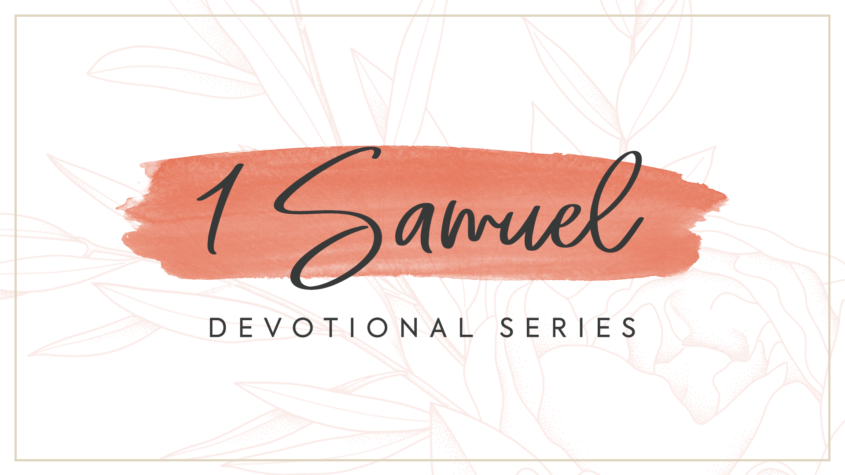To continue the story in chronological order, go back and read 1 Samuel 25-27 prior to the psalms we peruse today. The summary is, David moves into the land of the Philistines for sixteen months. The same Philistines that David sleighed their giant and continues to afflict Israel. David chooses to live there because he and King Saul do not end on good terms. There is not a devo for 1 Samuel 25-27, but I encourage you to read it and jot down what the Holy Spirit shows you.
Let’s turn the page to Psalm 54. It comes after the Ziphites go to King Saul to tell him David is hiding in their wilderness (1 Samuel 23). Imagine the despair in David as men continue to plot evil against him and join forces with others to seek out his life. David sees no end in sight. What does David turn to? The sovereign name of God. The power of God. David calls out for the One who is great and mighty to save. Again, this is not about David. This is not a pep talk David gives himself to shake off the dirt, stand up, and fight. Look closely at the next verses.
Psalm 54:3-4 says “they do not set God before themselves. Behold, God is my helper; the Lord is the upholder of my life.” David distinguishes the difference between people who put their lives in the hands of the God of Israel and who put their lives in the hands of man. For those like David who fully commit to God, trust Him, and follow Him, they receive God as “helper” and upholder”. There is freedom and relief in the good news that God is Sustainer. We do not have to be.
Q: Where do I try to be self-sufficient without God? How have I elevated my abilities and missed crediting God for what He does?
Q: What does it sound like to change my verbiage at work, with family, or friends, to give God credit like David?
Next, Psalm 63 is also created in the same context when David lived in the wilderness of Ziph fleeing from King Saul. David uses the similar theme “God upholds my life” from Psalm 54 in Psalm 63:7-8. How does David cultivate a relationship with God to the place where he believes “God upholds my life”? Look back at Psalm 63:1-6. David outlines for us his daily and weekly rhythms. David remembers time at the temple which is probably seasonal for festivals like Passover and new moon. These corporate gatherings are important for us too. The weekly rhythm together with other believers in the house of the Lord singing, praying, confessing, and reading the Word of God is good for us. Then, the daily rhythm in verse 6 is where David meditates on God. For David, time spent alone with God is all throughout the night which maybe gives a peak into what his shepherding days looked like. Can you picture David in a field with his flock at 2am? The only light is from the glowing stars in the sky and the only sound is bleating sheep. In his daily time alone with God, David gives praise and adoration to God, confesses his heart to God, and meditates on His Word. Maybe David sings a few of his psalms too. The point is David satisfies his parched soul with God. David believes without a doubt the steadfast love of God is better than his very breath.
David is removed from everything and everyone familiar to him. Writing Psalm 63 is not in the middle of his sheep, tending to their needs and protecting them. No. Instead, David writes in the wilderness. God is the Shepherd tending to David. What is the benefit of the wilderness? It removes distraction and complacency. Regular rhythms of “wilderness” are healthy. Instead of asking a friend to drop you off in a national park or West Texas, my wilderness looks more like solitude spent with God that removes daily noises of washing machines, emails, social media, and family commotion. All good things, but if we want to go deeper in our relationship with God, we have to pull away from all the things. This could look like a mom locking herself in the bathroom for twenty minutes soaking in a bubble bath. My last time of solitude was spent kayaking early one morning. The still waters kind of creeped me out, but I pushed through the restlessness. Other ideas coming to mind: back porch swing at sunset, hiking a familiar trail, plopped in an oversized leather chair, sunrise fishing, hammock on a cool afternoon. David outlines in both psalms the steadfast love and faithfulness of God that makes it worth placing his life in the hands of the Good Shepherd. No one else satisfies like Him. This is good news.
Q: Do I long for God like David? What rhythm of solitude can I practice in the next week (try an hour) that removes all things and places my full attention on God?
Additional reading: Psalm 17, Psalm 35
